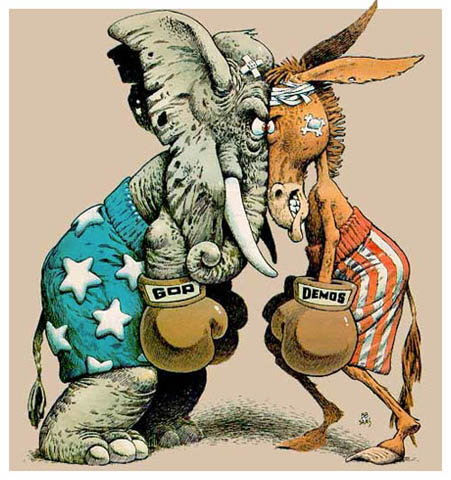Harrisburg’s $300 million incinerator debt has the capital in the middle of a state takeover and the twists and turns of the story read like a Nancy Drew mystery novel.
In 2003, city officials in Harrisburg borrowed $125 million to rebuild their enormous trash incinerator, which the federal government had shut down due to toxic air pollution.
The incinerator project quickly became a “money pit” as delays, cost overruns and troubles with contractors forced the city to borrow tens of millions more to complete the project. The project was eventually completed but to the tune of a staggering $300 million price tag. However, far from the moneymaker that the city officials were banking on, the lucrative contracts to burn trash in the new incinerator never materialized.
City officials were betting that by expanding the size of the incinerator, they would be able to burn enough garbage from neighboring counties to generate sufficient steam to be sold to covers costs and debt service. Unfortunately, the city officials lost that bet with many counties opted not to use the new incinerator. Even before the refit was complete, one of the general contractors went bankrupt. Today the steam generated by the plant barely covers its daily cost of its operation.
Faced with owing bond collectors more than they could afford to pay and on the verge of bankruptcy, the incinerator served as a constant reminder of a failed infrastructure project. Trying to buy down the incinerator debt, the city laid off 32 employees and increased taxes, to no avail.
To raise cash, Harrisburg’s mayor Linda Thompson suggested selling off the city-owned parking garages and even City Island, a park in the middle of the Susquehanna River, to a real estate developer. Thompson had little support from the City Council and residents for those ideas. An alternative was to have the state of Pennsylvania come in and take over the city much like a bankruptcy judge, but members of the City Council didn’t much like that option. Instead, against Mayor Thompson’s opposition, the City Council voted 4-3 to declare Chapter 9 bankruptcy protection in October. But, was this bankruptcy maneuver legal by the city council . . . ?
Harrisburg (population 50,000) is faced with debts exceeding $300 million or about five times the city’s annual budget and became late in making a $65 million debt service payment. The city is currently being sued by six creditors and is in imminent jeopardy of not being able to provide minimum services to its citizens.
Following the declaration of Chapter 9 by Harrisburg’s City Council, in steps the state of Pennsylvania.
In October, Corbett officially launched his Harrisburg takeover. Corbett claimed that, “Harrisburg’s “City Council failed to enact an adequate recovery plan to deal with the city’s distressed finances has led me to declare a fiscal emergency”. On October 20, Corbett signed a law (Senate Bill 1151) enabling an unprecedented takeover of Harrisburg and its finances, including the ability to use the city’s money to ensure that government continues to operate services, issues paychecks to employees and make pensions and debt payment.
Next chapter of the story occurs on November 23, when a judge who ruled that Harrisburg’s City Council wasn’t authorized to file the petition throws out the bankruptcy case. The judge questioned whether a divided Harrisburg City Council indeed had the authority to go over the mayor’s head and file for bankruptcy. In the end, the judge decided they didn’t. None too pleased with that turn of events, some members of the City Council is framing this city battleground as Main Street vs. Wall Street.
With the dismissal of the bankruptcy case, Corbett now had the green light to move ahead with the takeover and named David Unkovic, a lawyer for the state, and the Washington, DC law firm McKenna Long & Aldridge as receivers for the city of Harrisburg. The proposed state plan would force the city to sell parks and other assets and break union and vendor contracts. The City Council is not pleased and is digging in its heels and refusing to go along, preferring to raise income or sales taxes, which is unpopular with the voters.
Although the takeover of the capital by the state is unprecedented, it looked to be a fresh start for the city, a panacea of sorts for its residents . . . but not so fast.
In the last 10 days, the takeover of Harrisburg has faced a new challenge when three Harrisburg residents filed a federal lawsuit asking a judge to throw out the takeover bill that allowed the state takeover of the city. The suit names Corbett and the man he nominated to be the receiver, David Unkovic.
Filed by a former mayoral candidate, a union leader and a Baptist minister, they call the takeover an unconstitutional violation of their rights and are asking for it to be stopped. The lawsuit claims that Senate Bill 1151 takes away citizens right to due process and equal protection under the 14th amendment.
As for the takeover process, last week David Unkovic was approved as receiver by a Commonwealth Court judge and he now has 30 days to develop and implement a fiscal recovery plan for the city. Unkovic could be in for a bumpy ride from the disgruntled City Council members — remember they are working with the “it’s us against the world” mindset.
The final chapter on the state takeover of its capital remains unwritten. What we do know, is we have a city renovation project that went awry, ending up costing far more than expected. Residents paying among the highest trash removal rates in the country, an incinerator that can’t generate enough money to pay the debt, elected city officials who cannot seem to agree on how to move forward and a lawsuit against the Governor to stop the takeover of the capital by the state. Amazing . . .
Here’s to wishing Harrisburg and its residents better times for 2012!
